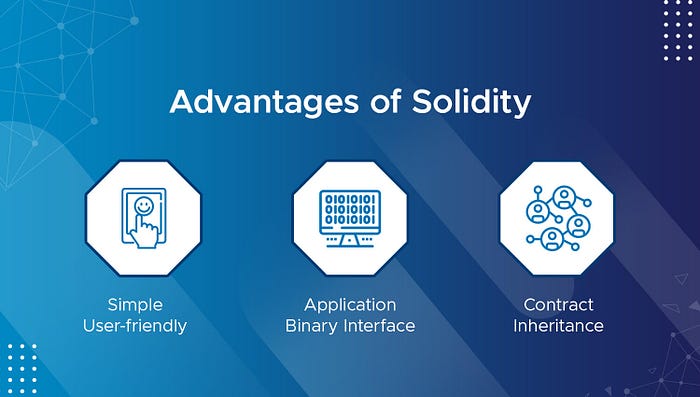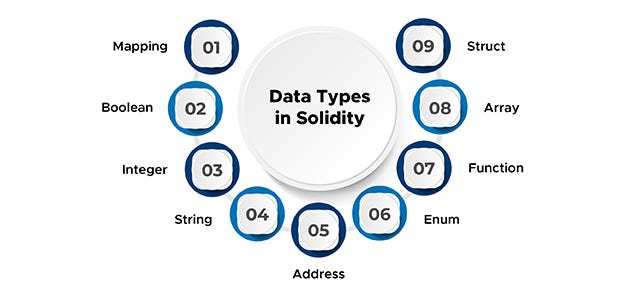
Bitcoin initiated the boom of blockchain technology. With no bank involvement, it was a quick and easy way to conduct decentralised transactions. People have faith in the unchangeable public ledger because it contains a record of each transaction.
However, Bitcoin has its limits. If blockchain technology had the right programming, it could be used for much more than just peer-to-peer financial trades. So, Ethereum came into existence to overcome this challenge. This platform is supported by a comparatively new programming language called Solidity. Solidity is of great importance in the emerging Web 3.0 world, providing the foundation for smart contract development and dApps. Solidity is now used by several smart contract development firms to provide creative solutions for a variety of applications, such as supply chain management and financial services. Solidity is becoming more and more well-known, and this has ramifications for dApps as well as the burgeoning smart contract development community.
Solidity for Smart Contract Development
A smart contract is a computer program that runs on a blockchain platform to execute a task after fulfilling a pre-requisite condition. They work with the coding-expressed "if/when...then..." assertion. Therefore, a smart contract automatically completes the related task after receiving information about a transaction from the ledger. But, even though they eliminate the involvement of any third party, they are dependent on the underlying codes. Solidity smart contracts are a particularly safe way to transfer anything of value because they are created on a blockchain and no entity can change or destroy them. It might, however, also have a disadvantage. For smart contracts to be solid, their code must be faultless and error-free. Transactions cannot be reversed in the past. Fixing bugs just requires updating the Ethereum code, which is a difficult undertaking.
Solidity makes designing, developing, and executing smart contracts on the blockchain platform quite easy for developers.
Also, Read | Pre-Built NFT and Smart Contract Solutions for Quick Launch
Benefits of Solidity Programming Language

- Relatively Easy to Learn
- Provide application binary interface (ABI)
- Supports Various Data types
Data Types Supported by Solidity

Solidity Development Tools
There are a few tools that simplify a developer’s journey related to solidity development.
Doxity
This tool assists clients in producing documents for a network. Additionally, it helps in streamlining their workforce.
Solidity REPL
Developers can use Solidity REPL for writing command line codes on the console. It is a general-purpose computing tool.
EVM Disassembler (Evmdis)
It is a tool to execute static analysis on the bytecode. It converts Ethereum contract bytecodes into a much simpler solidity-like code, increasing the understanding of the contracts.
Solgraph
Solgraph is a tool that creates DOT graphs, which show the function control flow of the solidity contracts and point out possible security flaws.
Also, Read | Resourceful Blockchain Programming Languages | Updated List
Solidity’s Application in Blockchain Development
Voting
In the real world, there are several ways that fraud can be committed during the voting process, including data manipulation, booth capturing, false voters, voting machine manipulation, etc. We could utilize voting contracts to address some of these issues. The code may be planned with solidity, and with correct implementation, the voting process will be easy, transparent, and automatic.
Crowdsourcing
If done through contracts, crowdfunding can address several challenges such as third-party commissions, data management issues, etc. Smart contracts may be a far better option for crowdfunding than unreliable federal systems. Solidity can be used to construct these smart contracts.
Blind Auctions
Solidity makes blind auction implementation on Ethereum incredibly simple. It is feasible to have an open auction where all bidders are aware of one another's offers. Then, until the auction concludes, no one can see the offers made by other buyers in a blind auction.
Also, Read | An Introductory Guide to Ethereum 2.0 | A Major Upgrade
Conclusion
Solidity plays a crucial part when it comes to Ethereum blockchain app development. Deft knowledge of this programming language can unlock the untapped potential of the Ethereum blockchain. However, not many people are well-versed in this emerging language. Moreover, with the help of our technical experts, you don’t have to worry about anything. Our team of skilled smart contract developers has experience with a variety of blockchain technologies, including the Solidity programming language. We have efficiently developed and managed many blockchain applications in numerous industries, namely finance, real estate, finance, and others. We adhere to exceptional firm development tactics for the best results.
#smartcontractdeveloper
#Ethereumsmartcontract
#Smartcontractdevelopment
#Smartcontractdevelopmentcompany
#smartcontractdevelopers
#Smartcontractdevelopmentservices





